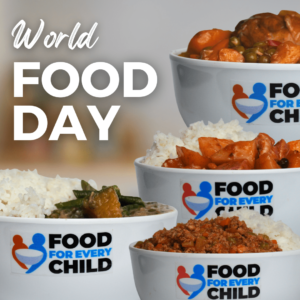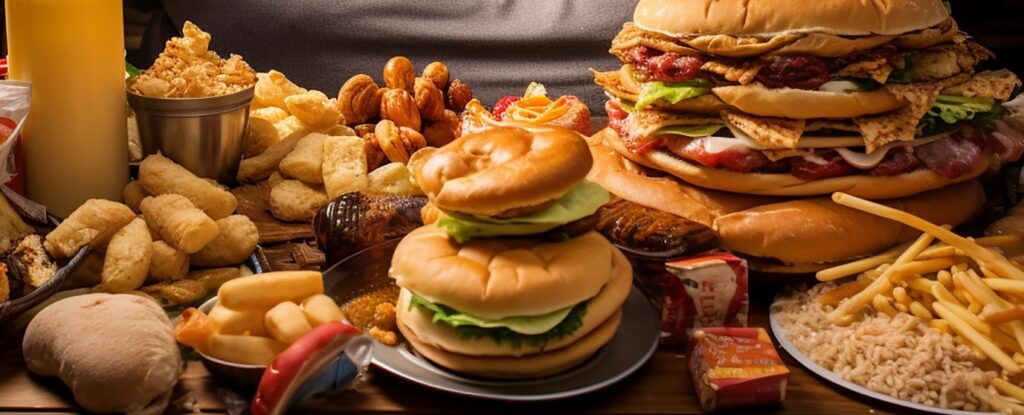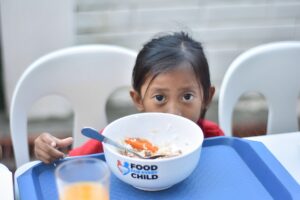
World Food Day: Let’s Build a Hunger-Free World for All Children
In the spirit of World Food Day, we stand united to combat child hunger and its far-reaching consequences. Join us on this journey towards a brighter, nourished future for every child.

In first-world countries such as the United States and Europe, where food is abundant, it’s paradoxical that millions of children still suffer from malnutrition. Despite having access to food, many face a daily struggle to get adequate nutrition.
The scale of malnutrition among children is staggering. According to the World Health Organization (WHO), over 149 million children under the age of five are stunted, while 50 million are wasted, reflecting acute malnutrition. Additionally, 340 million children suffer from deficiencies in essential vitamins and minerals. This paints a grim picture of global child nutrition.
What Are Empty Calories?
Empty calories are foods and beverages that are high in calories but lack essential nutrients like vitamins, minerals, and fiber. They are often laden with sugar, unhealthy fats, and little else. Common examples include sugary drinks, fast food, and processed snacks.
The Allure of Empty Calories
Empty calories are not only prevalent but also enticing. They are marketed aggressively, often targeting children with colorful packaging and catchy slogans. These foods may be affordable and convenient, making them easily accessible to families in both developed and developing nations.
Long-term Consequences
While empty calories might momentarily satisfy hunger, their long-term consumption can lead to severe health issues. High sugar intake, for instance, contributes to obesity and type 2 diabetes. Children who primarily consume empty calories are at risk of stunted growth, weakened immune systems, and cognitive impairments.

Nutrient-Rich Foods
Nourishing meals, on the other hand, are rich in essential nutrients. They include a variety of fruits, vegetables, whole grains, lean proteins, and dairy products. These foods provide children with the vitamins, minerals, and protein needed for healthy growth and development.
The Importance of Balanced Diets
Balanced diets that incorporate a wide range of nourishing foods are crucial for children. Such diets ensure that they receive adequate nutrition for physical and mental development. A well-balanced meal not only provides energy but also strengthens the immune system and supports cognitive functions.
Educating Parents and Caregivers
Raising awareness about the importance of nutrition and the dangers of empty calories is a vital step. Parents and caregivers need access to information that empowers them to make healthier food choices for their families. Food For Every Child conducts nutrition education seminars for parents during every feeding program. We want to ensure that parents are well-informed about the importance of proper nutrition.
We Need Your Support
Food For Every Child is committed to fighting child malnutrition. Through feeding programs, nutrition education, and advocacy, we strive to provide nourishing meals to vulnerable children and communities. Your support can make a tangible difference.
Empty calories may be tempting, but they come at a high cost for children’s health and well-being. Together, we can ensure that every child has access to the nutrition they need to thrive. Join us in this mission and make a lasting impact on the lives of children worldwide.

In the spirit of World Food Day, we stand united to combat child hunger and its far-reaching consequences. Join us on this journey towards a brighter, nourished future for every child.

Ensuring that every child has access to nutritious meals is not just a matter of physical health but also a fundamental building block for their mental and emotional well-being.

The Black Sea Grain Initiative, previously brokered by the U.N. and Türkiye, played a vital role in ensuring global food supplies, especially for nations in Africa, the Middle East, and Asia.
Adding {{itemName}} to cart
Added {{itemName}} to cart